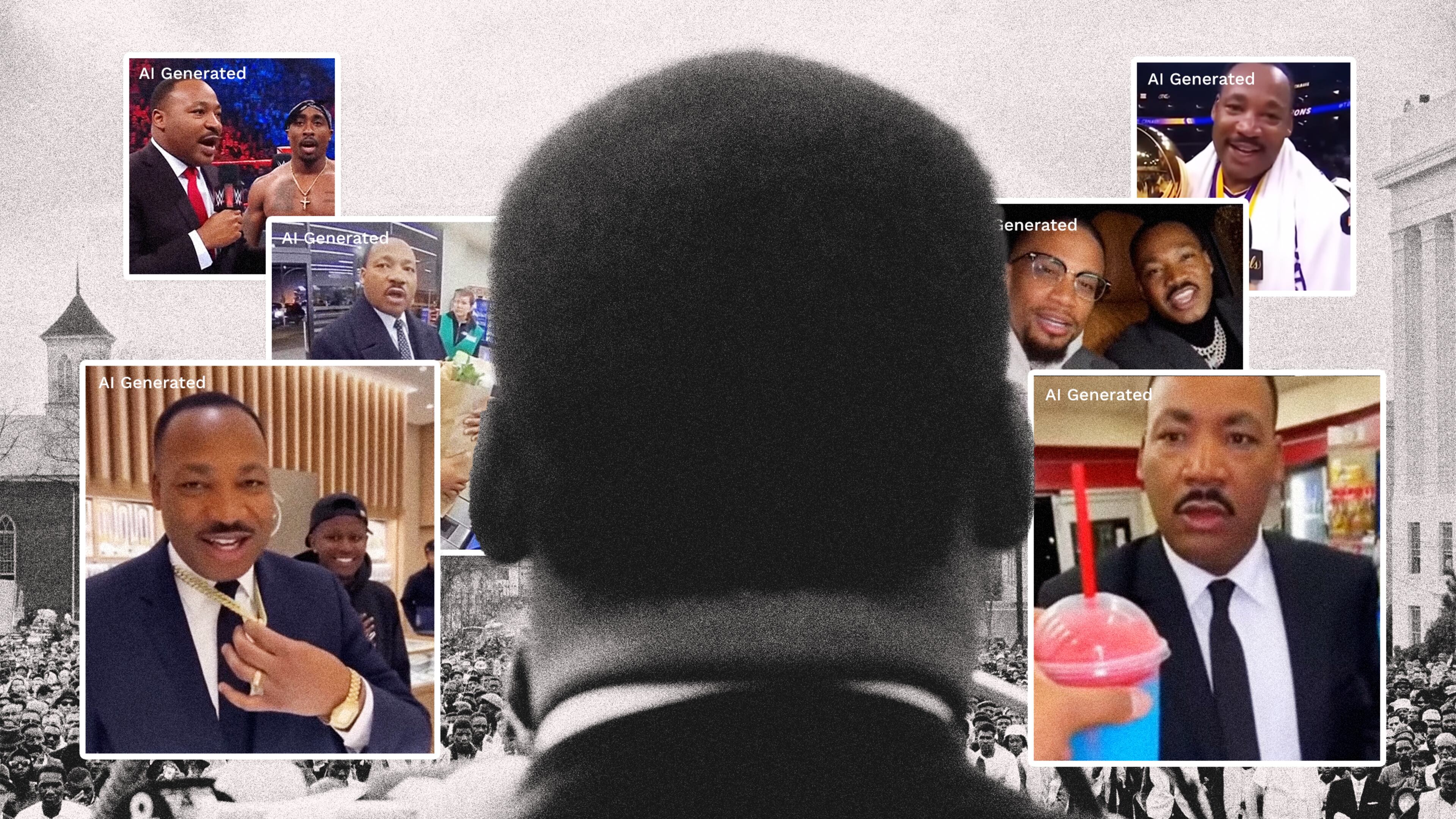In the age of AI, MLK Jr. has a disturbing new life. His family wants it stopped.

If you stumble across a video of Prince arm-wrestling President John F. Kennedy, Michael Jackson arguing with Hitler on “Maury” or Martin Luther King Jr. buying jewelry and shouting, “This was my dream all along,” it’s fake.
Sora, a new artificial intelligence app from OpenAI, has the internet asking a chilling question: What happens when technology starts rewriting history — and resurrecting the dead?
The app can create startlingly realistic videos from just a few lines of text. The results look astonishingly real — but none of it is.
Among the many clips flooding social media platforms are fabricated videos featuring King, whose image and voice have long been distorted through memes and early AI experiments.
The images of King are at times disturbing, crude and offensive. Like him stealing from a grocery store, running from police or using the bathroom.
The King Estate has taken notice.
In a joint statement issued with OpenAI — the company that developed the app — the family announced that OpenAI has blocked users from creating videos of King on its Sora platform, following complaints from the estate about the spread of “disrespectful depictions.”
“Some users generated disrespectful depictions of Dr. King’s image,” a spokesman for OpenAI said. “So at King Inc.’s request, OpenAI will pause generations depicting Dr. Martin Luther King Jr. as it strengthens guardrails for historical figures to help ensure Dr. King’s legacy is respectfully honored.”
The move follows an emotional appeal last week from Zelda Williams, daughter of the late actor Robin Williams, who pleaded with users not to share deepfakes of her father.
In response, Bernice King wrote on X: “I concur concerning my father. Please stop.”
This is a fight the King family has been fighting since King was assassinated in 1968 — protecting his legacy and image.
King’s estate has challenged the commercial use of his image. They’ve also filed suits over copyrighted speeches and policed the use of his recorded voice.
That has become harder in the age of AI.
In January, Bernice King, CEO of the King Center, issued a sharp rebuke of rapper Sexyy Red, calling her “disrespectful” for posting AI-generated images of herself with Dr. King.
One of the images, shared the day after the slain civil rights leader would have turned 96, shows King and Sexyy Red holding hands and gazing into each other’s eyes on what appears to be a dance floor.
Although the ability to create new images has been blocked by OpenAI, existing videos can still be found across social media.
In its statement, OpenAI acknowledged the delicate balance between creativity and consent.
“While there are strong free speech interests in depicting historical figures, OpenAI believes public figures and their families should ultimately have control over how their likeness is used,” the company said.
The company added that authorized representatives or estates can now request that their likeness not be used in Sora videos.
With Sora, users can upload their own images and voice samples, inserting themselves into entirely fabricated videos. But the app doesn’t stop there. As seen with viral clips of King, Malcolm X, Whitney Houston, and others, it can merge real people with fictional scenes — or digitally resurrect the dead.
It all takes less than a minute before it is shared on Facebook, TikTok and Instagram.
Experts warn that Sora and similar tools, like Google’s Veo 3, could become powerful engines for disinformation. The technology’s speed and sophistication, they say, make it easier than ever to create footage that feels authentic — and to weaponize history itself.
“Sora 2’s ability to generate hyperrealistic video and audio raises important concerns around likeness, misuse and deception,” OpenAI wrote in a statement announcing the app. “We are taking a thoughtful and iterative approach in deployment to minimize these potential risks.”
